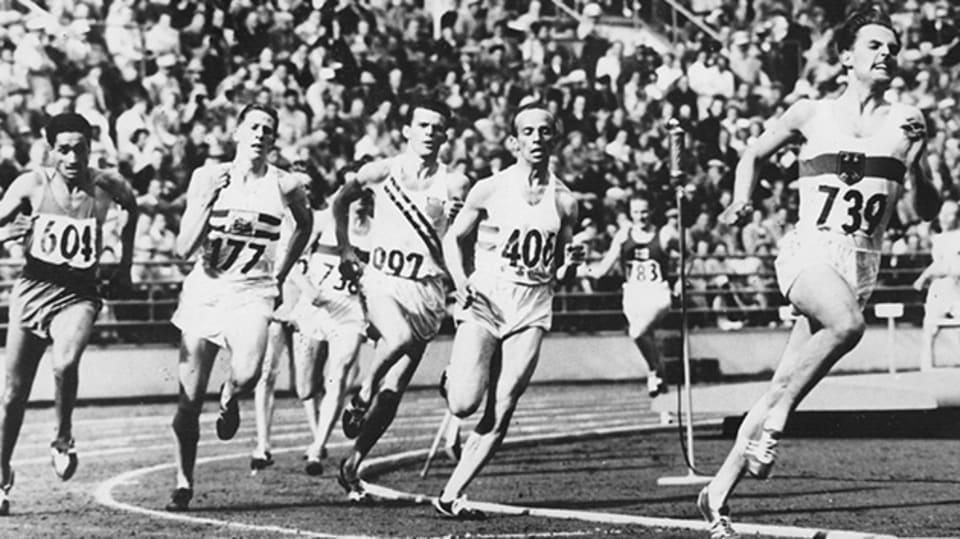Barthel emerges from under middle-distance radar
For much of Helsinki 1952, middle-distance runner Josy Barthel remained firmly under the radar. His initial successes had come in the military world championships of 1947 and 1948, and he had placed ninth in the 1,500m at the previous Olympic Games in London. So he was hardly a household name.

Barthel cut a short and slight figure, even by the standards of middle-distance runners. He also hailed from Luxembourg, a country whose only previous gold medals had come in art and, in 1900, courtesy of a marathon runner who had actually been competing for France. In short, Barthel was a rank outsider for glory.
The hot favourite, meanwhile, was West Germany’s Werner Lueg, who had just equalled the world record, while the young British runner Roger Bannister was also heavily tipped for success. Even when he won his semi-final, Barthel's name attracted little attention.
In the final, the early pace was set by Norway's Audun Boysen, before Lueg’s compatriot Rolf Lammers took up the running. Lueg himself waited until the third lap to make his move and at the bell was established in the lead.
Three different athletes then launched attacks. Each time Lueg responded with a surge of speed. The German was still leading at the final bend, with Barthel still completely unnoticed. Hardly anyone paid any attention as the Luxembourgish runner, together with America's Bob McMillen, suddenly moved from the anonymity of the pack to the front of the field.
Lueg's dogged defence of his lead had taken its toll, and he began to struggle as the finishing line came into view. Barthel and McMillen both passed him, and the two men sprinted towards the line, with Barthel edging ahead by a fraction. The American closed to within touching distance, but with a few metres to go Barthel knew he had won, and crossed the line with arms raised and a broad smile across his face.
Of the 12 finalists, six ran faster than they had ever run before. Barthel broke the Olympic record, and also beat his own personal best by more than three seconds. Bannister, who would go on to become the first man to run a sub-four minute mile, came fourth.
Barthel's gold medal remains the most famous sporting achievement in his country's history.
